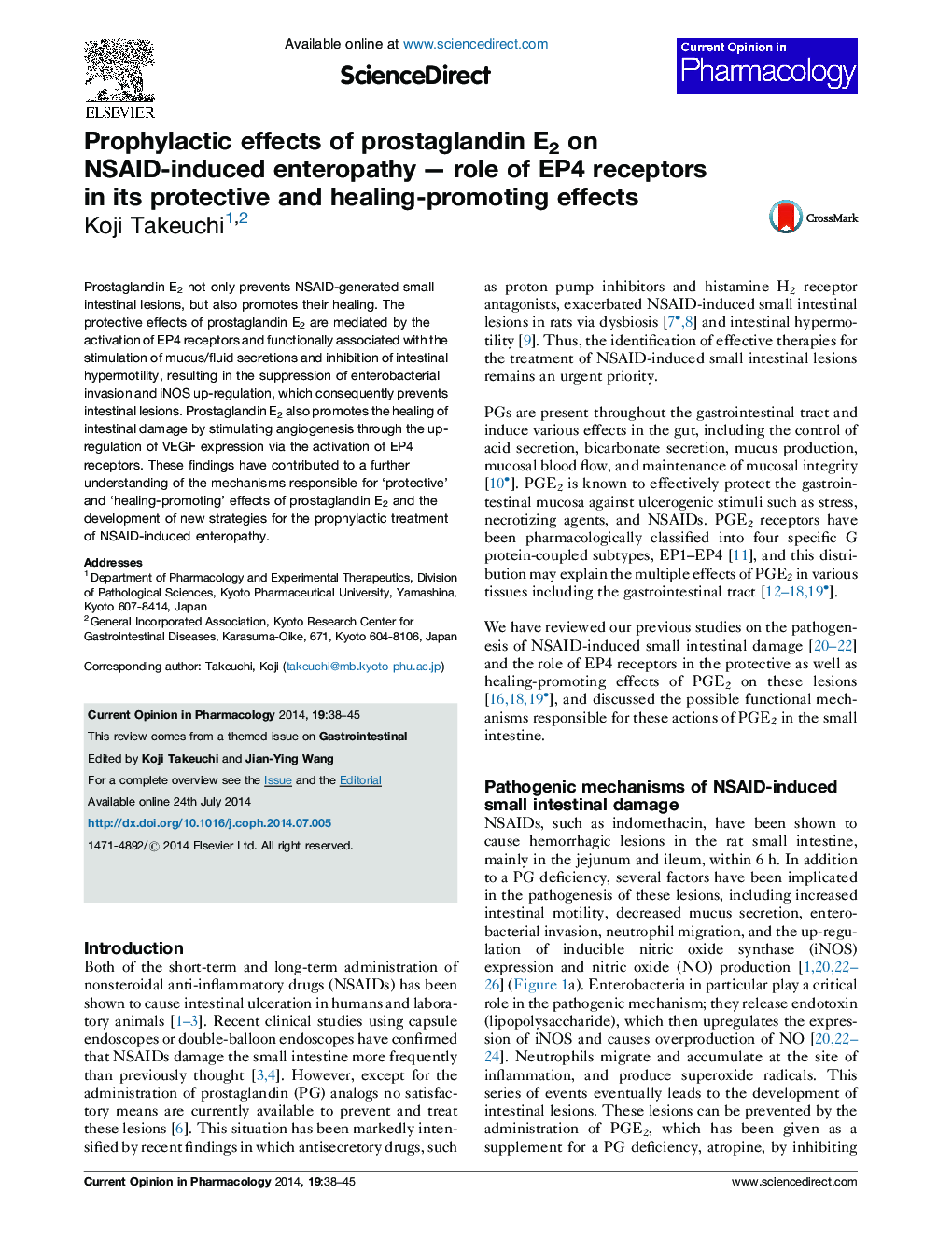| Article ID | Journal | Published Year | Pages | File Type |
|---|---|---|---|---|
| 2529907 | Current Opinion in Pharmacology | 2014 | 8 Pages |
•NSAID-induced enteropathy was prevented by PGE2 via the activation of EP4 receptors.•The protection occurred with increase of mucus secretion and inhibition of motility.•These changes led to the inhibition of enterobacterial invasion and iNOS expression.•The healing of these lesions was promoted by PGE2 and impaired by the EP4 antagonist.•PGE2 stimulated angiogenesis by up-regulating VEGF expression via EP4 receptors.
Prostaglandin E2 not only prevents NSAID-generated small intestinal lesions, but also promotes their healing. The protective effects of prostaglandin E2 are mediated by the activation of EP4 receptors and functionally associated with the stimulation of mucus/fluid secretions and inhibition of intestinal hypermotility, resulting in the suppression of enterobacterial invasion and iNOS up-regulation, which consequently prevents intestinal lesions. Prostaglandin E2 also promotes the healing of intestinal damage by stimulating angiogenesis through the up-regulation of VEGF expression via the activation of EP4 receptors. These findings have contributed to a further understanding of the mechanisms responsible for ‘protective’ and ‘healing-promoting’ effects of prostaglandin E2 and the development of new strategies for the prophylactic treatment of NSAID-induced enteropathy.
